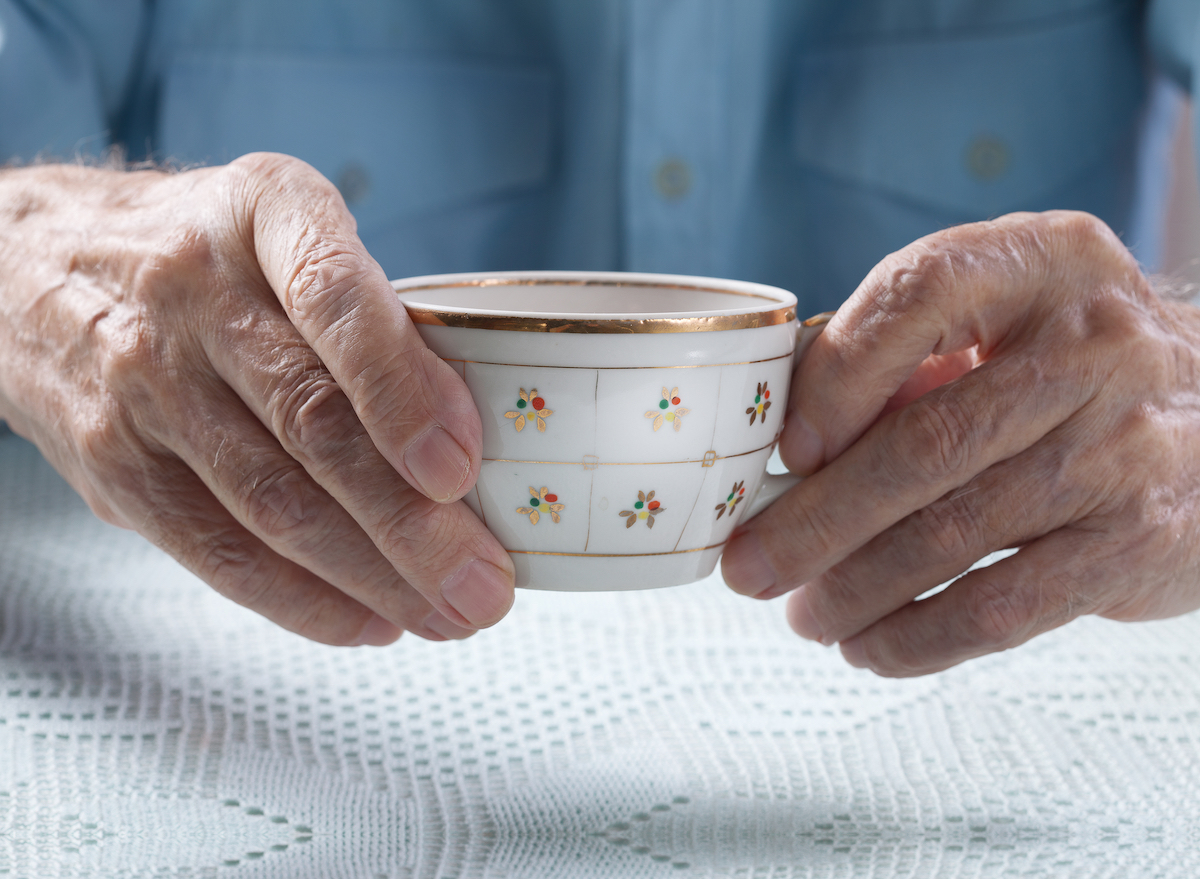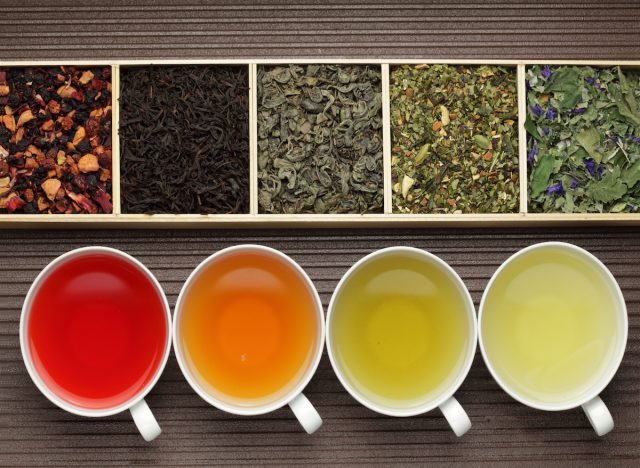This Drink Can Lower Risk of Dementia, Say Experts

Although dementia cannot be stopped in its tracks, people will do anything to help their loved ones fight the battle. And although not an easy subject to discuss, it’s best to be prepared at any given moment, especially as you grow older. Those at risk will try and find any way possible to lower their chances. This includes trying supplements, eating certain foods, and even trying different exercises.
Thanks to tons of research, and a presentation given at the 2022 Tea Symposium, growing evidence is showing that tea could significantly reduce the risk of vascular dementia, as well as potentially Alzheimer’s disease.
The conclusion comes from Jonathan Hodgson, PhD, professor at the Institute for Nutrition Research at Edith Cowan University, who presented the take on tea and its flavonoids–a diverse group of phytonutrients (plant chemicals) found in plants– in relation to cognitive decline.
Hodgson informs that in recent years, there has been increasing evidence that regular tea consumption, as little as 1 to 2 cups per day, may provide protection against these diseases. Data from these studies have also shown that moderate intakes of the flavonoids present in tea are associated with a reduced risk for cognitive decline and dementia, specifically vascular—the cause of memory loss in older adults, particularly in those at higher risk of stroke due to obesity or diabetes.
“Long-term higher intakes of tea and its flavonoids, compared with low intakes, could reduce the risk of a range of diseases linked to vascular health by 10 to 20%,” says Hodges in the Symposium. “Only moderate and easily achieved intakes of tea and flavonoids are needed for maximal health benefits.”

Lauren Manaker, MS, RDN, LDN, CLEC, CPT, author of The First Time Mom’s Pregnancy Cookbook and a member of our medical expert board also speaks on the effects of tea.
“Dementia affects an estimated 5 million adults each year and experiencing it can be life altering. Amazingly, the simple act of sipping on certain teas can support cognitive health in a natural way,” she says. “The combination of the L-theanine and a low dose of caffeine, when consumed together, appear to improve attention.”
Manaker also states although there is no “magic bullet” to preventing dementia, certain dietary and lifestyle changes can reduce the risk of developing this condition, such as drinking as little as one to two cups daily of true tea—teas that come from the same Camellia sinensis plant, unlike herbal teas.
“Black, green, oolong, dark, and white teas all fall under the true tea umbrella, and therefore can be an important addition to a brain health-supporting diet,” says Manaker.
Some suggestions Manaker has for incorporating true teas into your daily routine include starting your day with a warm tea latte and sipping on an iced green tea mid-afternoon.
“Sneaking true tea into your diet is one of the easiest ways to support your brain health and possibly keep your dementia risk at bay,” says Manaker. “Especially for people who want to take steps to reduce their dementia risk, adding true tea to a healthy diet can be one wise step in the right direction.”








